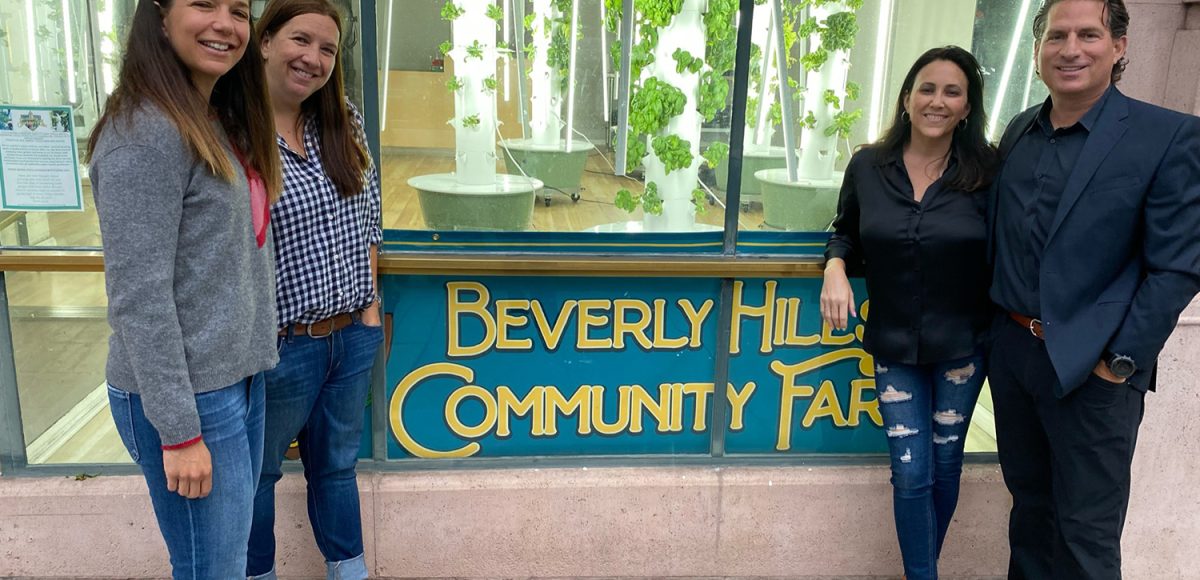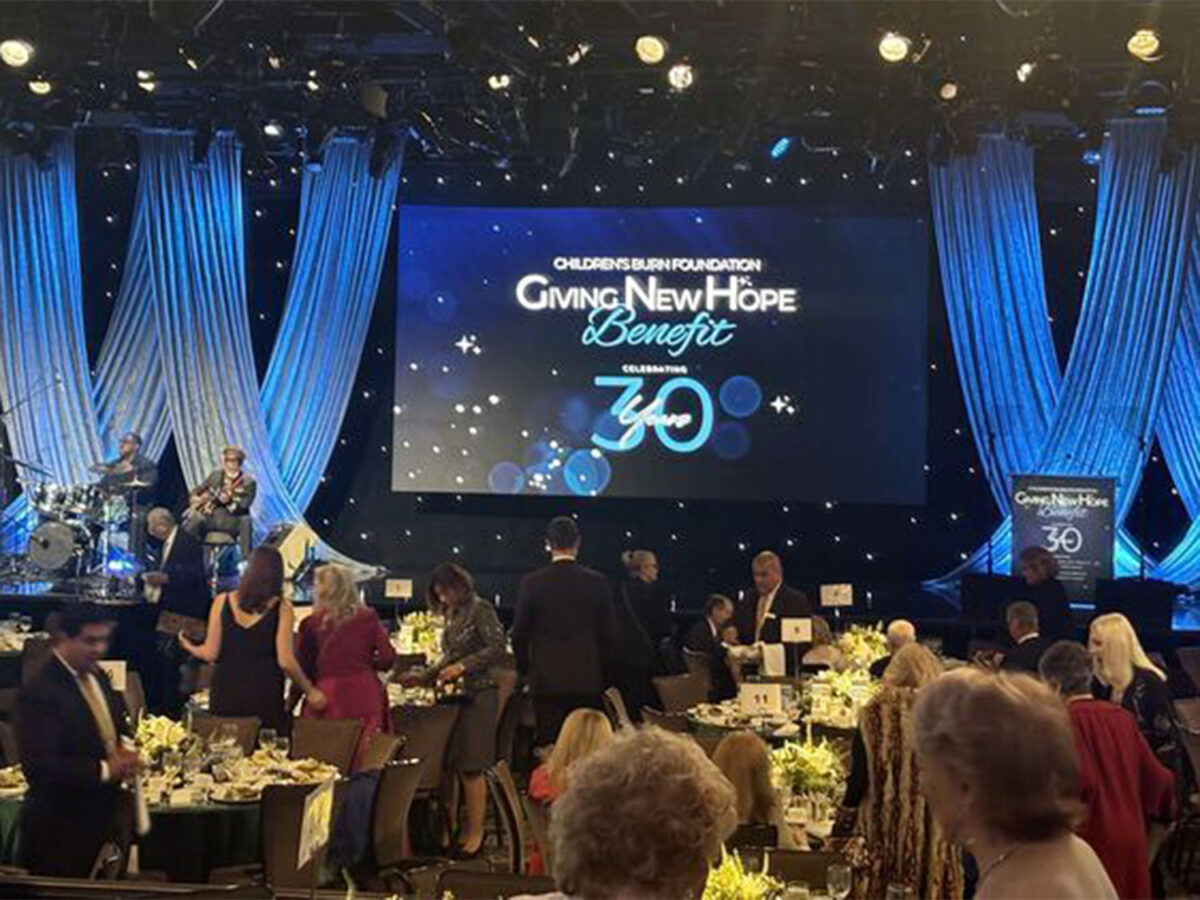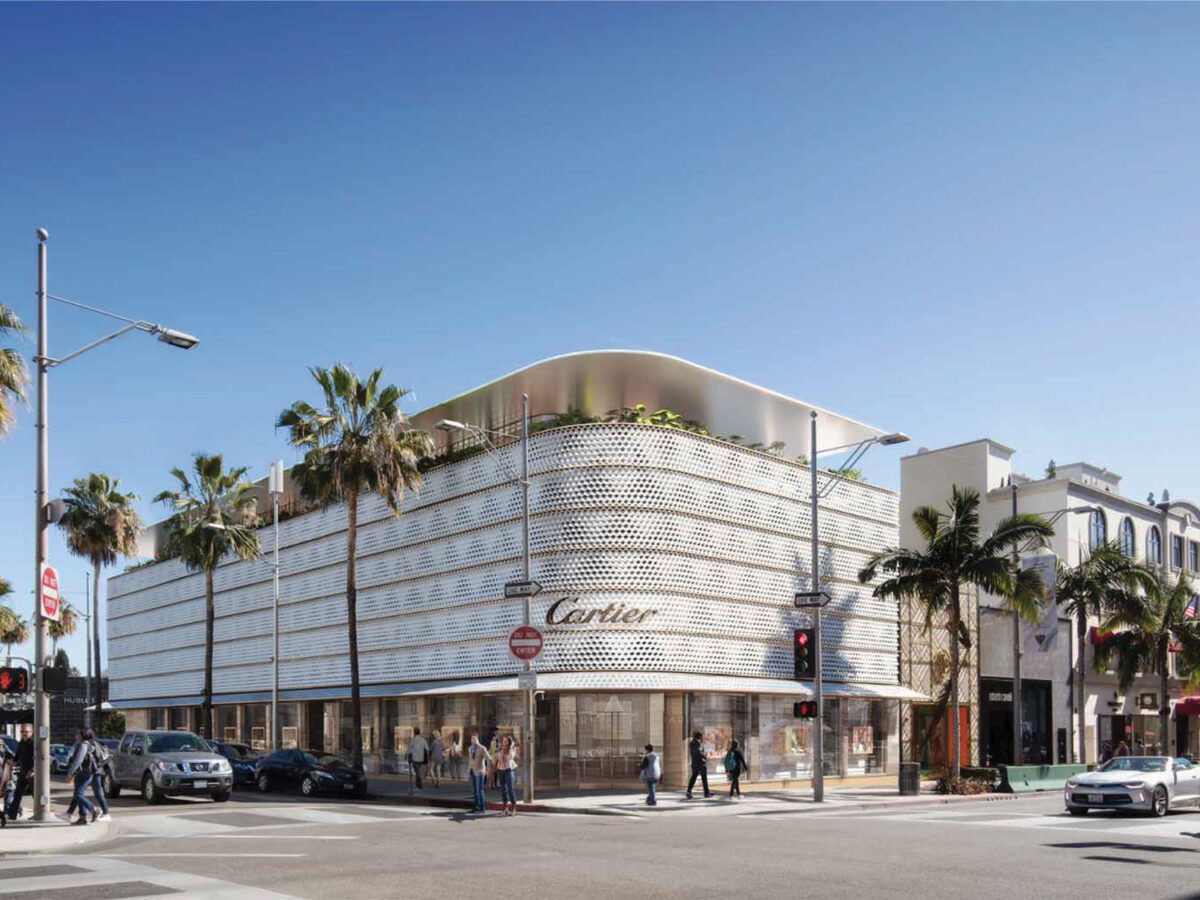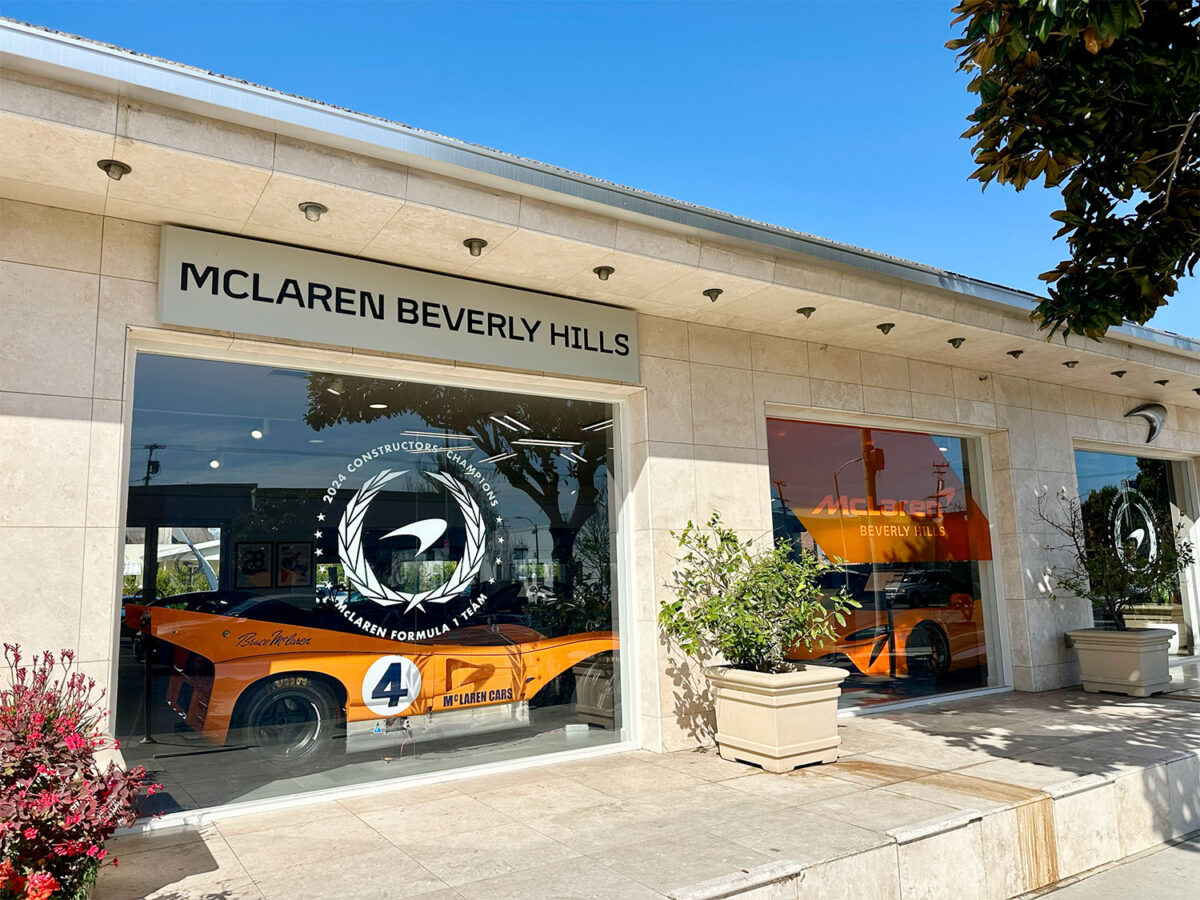Head down North Bedford Drive in the heart of Beverly Hills, and you’ll see plenty of typical storefronts: cafés, jewelry stores, nail salons, and the like. But near where Bedford crosses Brighton Way, you may notice something a little less ordinary nine large hydroponic towers, each with various plants and herbs growing out of them.
Welcome to the Beverly Hills Community Farm.
Founded in January 2020, the farm is the product of years of research and a lifetime of passion for founders Jen Levy, Hope Levy-Biehl, and Gaby Reims Alexander, all Beverly Hills natives.
“As an educational farm, our goal is to really teach people about the benefits of eating food locally, growing food locally, growing in an environmentally sustainable way,” Levy told the Courier.
The farm is currently located in a vacant retail space what used to be a shoe store that was donated by Welltower Inc., a healthcare infrastructure company headquartered in Ohio. Reims Alexander works with Welltower in her full-time job, and said the company has been very supportive of the farm’s mission.
During the pandemic, the farm has pivoted its focus to addressing food insecurity in surrounding communities. Since March, the farm has been making weekly donations to the SOVA Valley food pantry, New Directions for Veterans, and other organizations.
“It was really our goal to start growing [produce] in this space, or in any space, so we could donate it,” Levy told the Courier. “The goal was really just to give back.”
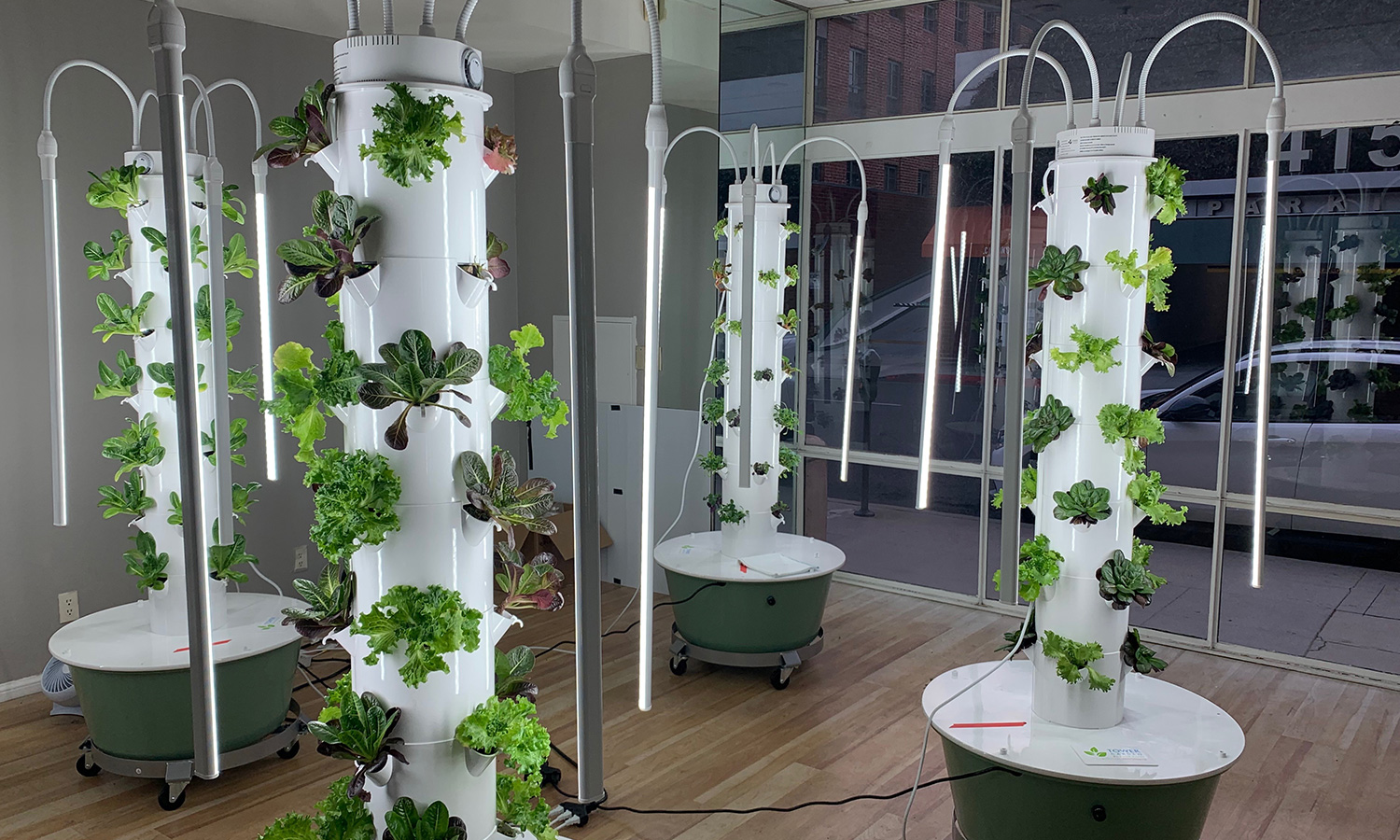 The farm donates between five and 10 pounds of produce each week, which as Levy points out, is more than it sounds depending on the type, a head of lettuce weighs around four to six ounces. The farm’s weekly donation feeds between 60 and 70 people, Levy said.
The farm donates between five and 10 pounds of produce each week, which as Levy points out, is more than it sounds depending on the type, a head of lettuce weighs around four to six ounces. The farm’s weekly donation feeds between 60 and 70 people, Levy said.
The farm has 15 hydroponic towers, each of which can hold up to 28 plants. A tank at the bottom contains 20 gallons of water, which is periodically pumped up and showered onto the seedlings. Because the towers are indoors, Levy explained, the farm also utilizes LED lights and fans for proper lighting and air circulation. The towers use 90% less water than ordinary outdoor farming, Levy added, while growing about three times as fast. From seed germination to harvest, the farm’s process takes five to six weeks.
“We really want people to be able to use these towers,” Levy said. “Any localization of food we can do is great. If you can grow it in your backyard, amazing. If you can grow it in your kitchen, amazing. As long as you can take out that travel piece, it’s super exciting for us to get people to see their potential. You don’t really have to be a gardener to do this.”
The farm will assist anyone interested in acquiring a hydroponic tower, and provides training and classes on numerous topics from the towers to farming, home gardening, and other sustainability-related subjects. Levy added that the farm also has begun partnering with schools.
Because of the pandemic, the farm didn’t begin operating in earnest until January of this year. As they continue to establish themselves in the community, Reims Alexander said, increasing their production will be key. Once they have more space, they can grow more food and offer more programming and services.
“Ultimately, our vision really would be a large, outdoor space that’s very accessible to everyone,” Reims Alexander told the Courier. “That would illustrate all the different methods of growing, so we’d have planting beds, we’d have a [shipping] container, we’d have the towers. We’d have onsite programming where people can come participate hands-on in every step of the process.”
In the coming months, as the farm expands its capacity, Reims Alexander said they hope to launch a community supported agriculture program where residents can sign up for weekly produce deliveries. They’d also like to create a farm-to-table pipeline for local restaurants. Locally grown produce tastes better, Levy noted, and has a decreased environmental footprint.
“‘Local’ could be 200, 250 miles sometimes, which is local in a big city,” she said. “But we can be hyper-local. We can do it in less than five miles, less than two miles sometimes.”
Though the farm is in its early days, Reims Alexander said the community’s reaction has been “amazing.” The Beverly Hills Human Relations Commission helped connect the farm to the Menorah Housing Foundation, one of recipients of the farm’s donations. As the farm becomes more established, Reims Alexander said, she anticipates even more collaboration with the city.
“This is very forward-thinking, and really in-line with, I think, what a lot of the council members and commissioners want to see Beverly Hills be,” she told the Courier.
For now, Levy and her fellow co-founders are content with their prime location on North Bedford Drive, growing a variety of greens and herbs and interacting with curious passersby, most of whom have never seen a hydroponic tower.
“The best part about this space is so many people walk by and come in, and we get to teach them about it in a very informal way, which is exciting,” Levy said.
The farm’s aesthetic appeal will only continue to grow, too. Levy hopes to exponentially increase their tower quantity.
“I would love to have 50 of these,” Levy told the Courier. “I mean, I’d love to have 300 of them, but I’ll start with 50,” she said with a laugh.
The farm is located at 414 N. Bedford Dr. Beverly Hills, CA 90210.



